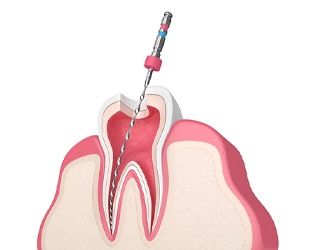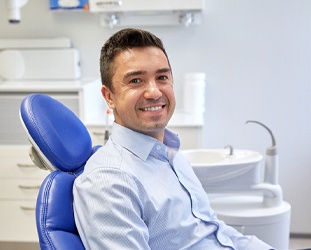 request an appointment
request an appointment
What is an Endodontist? – Huntsville, AL
Leave Root Canal Therapy to the Experts!

Your average dentist may perform about two root canal procedures a week, if at all. However, there’s a good chance that they’ll refer you to an experienced endodontist such as Dr. Bishop instead. This is because when it comes to treating and stopping infections that have taken root deep inside the dental structure, an endodontist will have far more training and experience to help them in the process of saving your smile. If you have any questions about our practice or our services, get in touch with us today.
What’s the Difference Between Endodontists and Dentists?

Endodontics is a field that only three percent of dentists specialize in. Such specialists are called endodontists, and they mainly treat the inner parts of the teeth via root canal therapy. They’ve completed at least two more years of training after dental school, learning how to accurately diagnose tooth pain as well as how to perform the latest root canal procedures and techniques. Unlike dentists, endodontists will use root canal therapy to treat as many as 25 teeth every week. Because of this, they can address complex issues more reliably and greatly improve your odds of preserving your already damaged tooth.
What Kind of Services Does an Endodontist Perform?

Root canal therapy – the nonsurgical process of removing inflamed or infected tooth pulp – is the most common endodontic service. Part of the process involves opening the tooth and sterilizing the inside before covering it again with a crown. Dr. Bishop can also offer endodontic retreatment. This essentially means that if a root canal you received at a different practice has failed – or if the treated tooth is now suffering from a new infection – the filling placed during the initial treatment can be removed, and the inside of the tooth can be cleaned again. On occasion, you might require endodontic surgery to address any signs of infection or decay that has already spread past the roots of your teeth.
How Will I Know if It’s Time to See an Endodontist?

You should be examined by an endodontist if you have tooth pain that lasts longer than a couple of days or occurs whenever you eat hot or cold foods. It’s also a good idea to be checked out after an accident involving facial trauma or if you’ve noticed severe swelling in your mouth. Scheduling an appointment as soon as you notice a potentially troublesome symptom can raise your chances of saving your tooth.